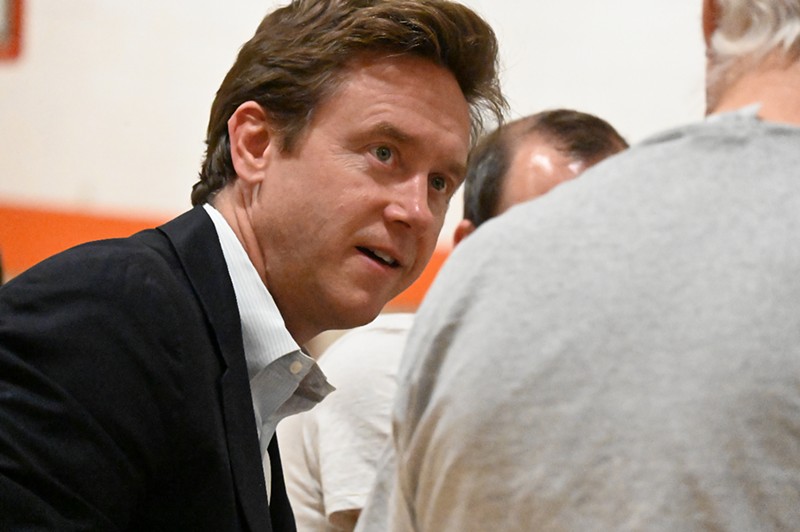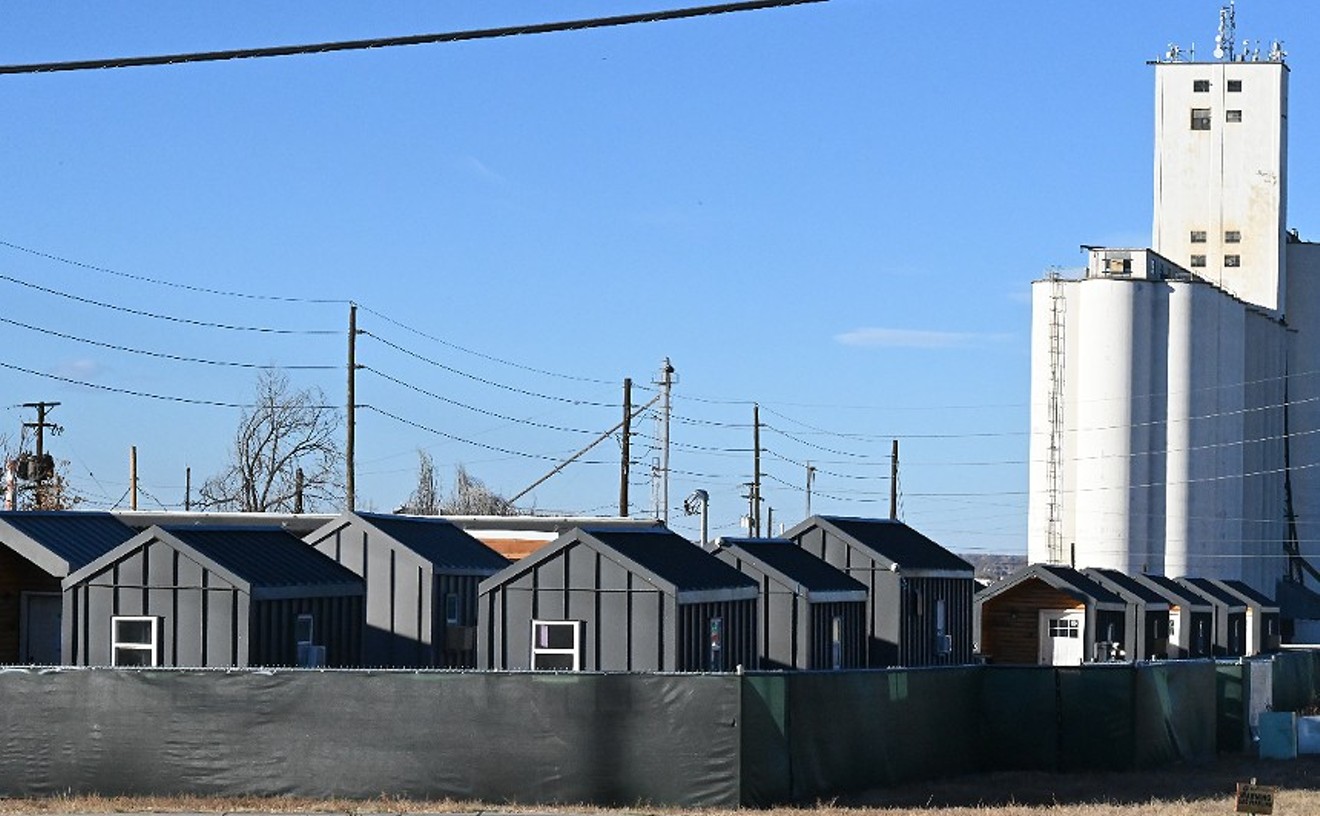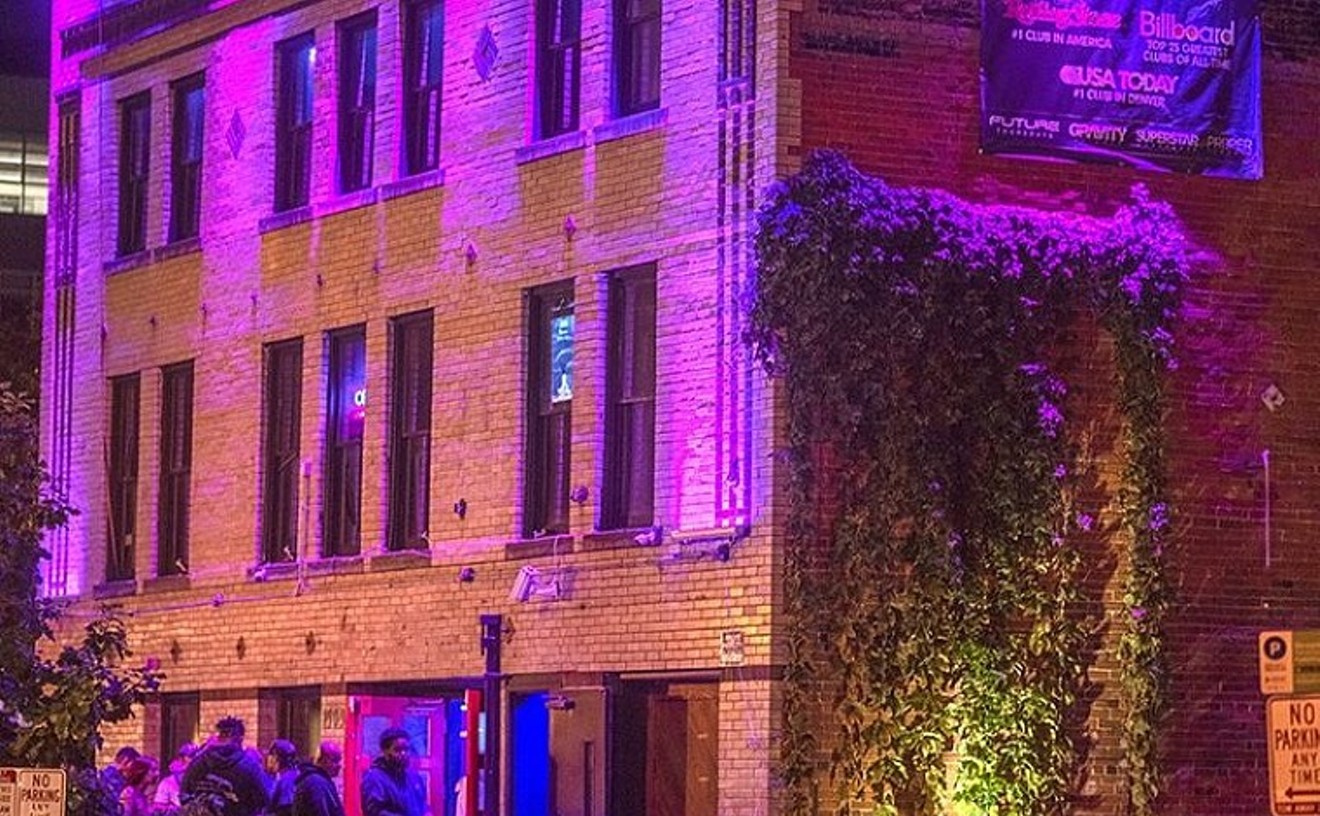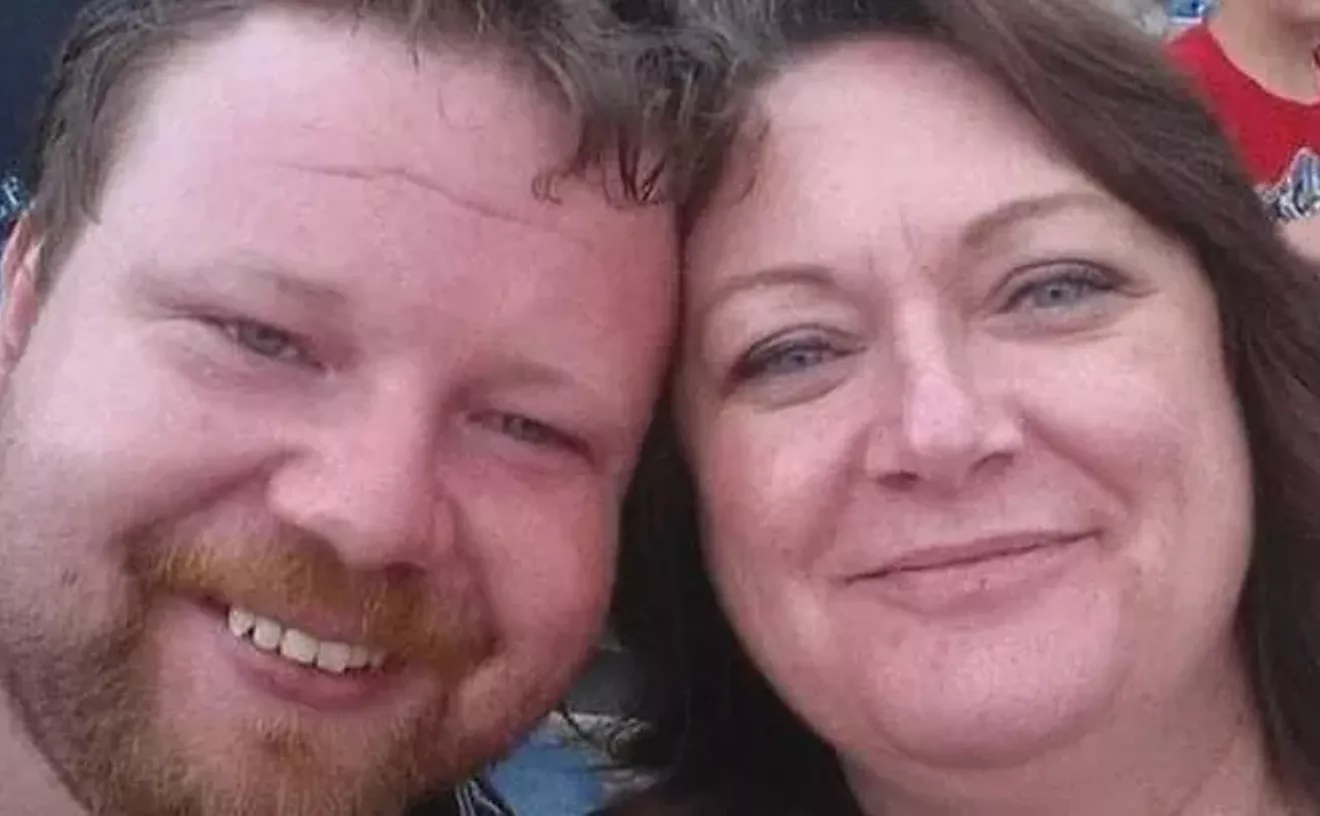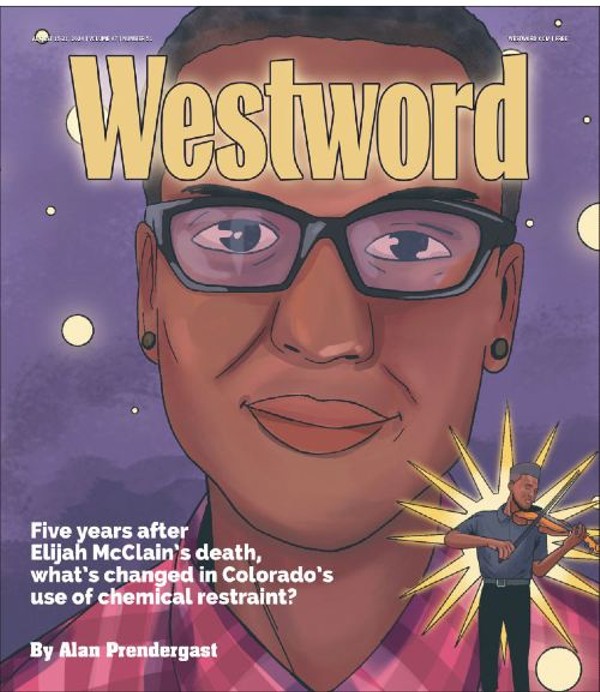The town hall, attended by about fifty residents, was the fifth in a series that Johnston and his administration have been hosting to talk about affordability in Denver. Tuesday night's town hall took place at the La Familia Recreation Center, 65 South Elati Street, and was meant for residents of Denver City Council District 7, which includes the Ruby Hill, Overland, Speer, Baker, Platt Park and Washington Park West neighborhoods.
Several residents asked the mayor for "upzoning," which they described as allowing more units per parcel of land by changing city zoning laws. Upzoning would include allowing homeowners to build Accessory Dwelling Units or turn houses into subunits like duplexes or triplexes.
Accessory Dwelling Units have been mentioned at previous meetings as a way for homeowners to make money by building and then renting them out or allowing family members to move in. Johnston has promised at other meetings that city council will look at rezoning the entire city to allow ADUs, but council hasn't picked the question back up since first considering it in March.
A resident from the Overland neighborhood said during the town hall that it seemed like Denver is moving away from building multi-family housing like townhomes, condos and duplexes, and more toward single-family housing, or homes that don't share walls with other homes.
"The structure of Denver housing has changed over time to be a little more single-family and more expensive," he said. "And we'd like it to change back to less single-family and less expensive."
Residents said the desire for density came from wanting cheaper options that were still spacious. One resident said that he wants to sell his single-family home because he can't afford to live in it anymore with rising costs, but all he can find on the market are small, overpriced apartments and other single-family homes.
"We definitely all have the shared experience of we can't move," Rebecca Green, another Overland resident, said. "How do we advance in our own housing?"
Green added, "We are all seeing our neighbors get displaced out of Colorado or out of Denver" after selling their homes without finding somewhere to live nearby. "A lot of us feel that we're very fortunate and lucky to be able to live here, but there's definitely a struggle."
Baker resident Terri James, a realtor in Denver for the past twenty years, tells Westword that many of her clients are "house poor." They spend all their money on mortgages, she says, and can only afford to buy a new house with equity loans. Many of them return to renting because the interest rate for mortgages has climbed from 3 percent to 7 percent in the past few years, according to James, who says she's felt the same pressure of rising costs to move out of Baker.
"We have a huge problem," James told Johnston at the meeting. "I don't want to leave my neighborhood. I love my home, and I just don't know where to even move."
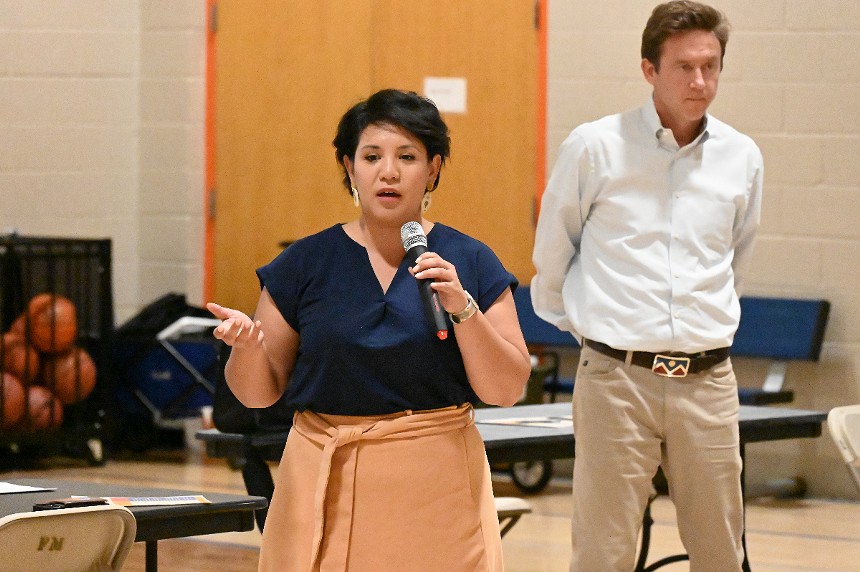
District 7 Councilwoman Flor Alvidrez explained her opposing stance on Mayor Johnston's "Affordable Denver" tax during a town hall on Tuesday, August 13 in her district.
Bennito L. Kelty
Washington Park West resident Caeli Hill, who is also on Denver's Affordable Housing Review Team, said that if the city is building new housing, then some of those units should be for sale, and not just for rent.
"For sale is really important," Hill says. "We spend a lot of time talking about rental because it is the easiest way to make a dent."
City council still needs to approve the Affordable Denver ballot proposal. Councilmembers voted 8-5 on August 12 to move the ballot proposal on to a second reading and public hearing on Monday, August 19.
One of the opposing votes on Monday came from Councilwoman Flor Alvidrez, who represents District 7. At the town hall, residents were treated to a mini-debate between her and Johnston.
One of the opposing votes on Monday came from Councilwoman Flor Alvidrez, who represents District 7. At the town hall, residents were treated to a mini-debate between her and Johnston.
"This is a regressive form of taxation," Alvidrez said. "It's going to be disproportionately impacting lower-income communities, and that is very important to me. Right now I have a very blurry view of where these funds are going and how they're going to work for us."
Alvidrez admitted that the proposal has "lots of great ideas" in it, but would like to see a "sunset," or a time limit on the tax that would have to be renewed. "In ten years, we come back to the voters and say, 'This is what we did over the last ten years. This is why we deserve your support forever, or over the next ten years,'" she said.
Johnston responded by explaining that a sunset would prevent the city from issuing long-term bonds against the new tax revenue. He plans on using bonds to bring in money right away instead of waiting for the city to collect millions in tax revenue while the cost of development goes up or even doubles, according to Johnston.
"The more units we build on the earlier side of that curve and pay the bond with future revenue steams is the cheapest way to use public dollars," he said.
To Alvidrez's concerns about transparency and unfairly taxing low-income communities, Johnston said there is "unprecedented amounts of both accountability and transparency reported in this measure to show each year how many units we'll build, what income levels may apply, in what neighbors...we've been clear about setting big public targets to hold ourselves accountable to."
Johnston's next town hall on affordability will take place on Thursday, August 15, in Highland at the Scheitler Recreation Center, 5031 West 46th Avenue. The town halls, also called Community Conversations, have focused on safety and vibrancy at other meetings.
Residents interested in attending a Community Conversation in their neighborhood can find future meetings scheduled on affordability and followups to safety meetings, which wrapped in June, on the mayor's online community outreach calendar. Meetings on vibrancy will continue in the fall.
Residents interested in attending a Community Conversation in their neighborhood can find future meetings scheduled on affordability and followups to safety meetings, which wrapped in June, on the mayor's online community outreach calendar. Meetings on vibrancy will continue in the fall.

